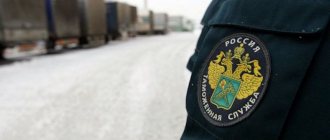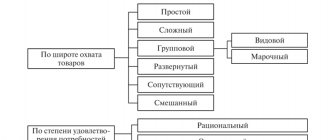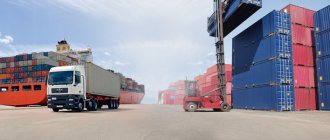In order to become a participant in foreign economic activity, you first need to understand what relates to foreign economic activity. In the domestic market of the country, companies carry out all kinds of economic transactions that generate profit. When an organization enters the international market, foreign economic activity begins.
The most common types of foreign trade activities are the export and import of goods or services, cargo transportation and cargo insurance. Even if you trade some goods in Russia, but at the same time buy raw materials in other countries, then you are a participant in foreign economic activity.
Any legal entity can carry out foreign economic activity. However, to simplify the declaration of goods and customs clearance procedures, a foreign trade participant can secure this status.
If you are just planning to start international economic activity, it is advisable to get specialist advice. And if it is not possible to hire experts in foreign economic activity on a permanent basis, then you can use outsourcing services for accounting, declarations or communication with counterparties.
Do you want to figure it out, but don’t have time to read the article? Lawyers will help
Entrust the task to professionals. Lawyers will complete the order at the cost you specify
Solve the issue >
What is foreign economic activity?
FEA stands for foreign economic activity; the essence of the concept is the international mutually beneficial exchange of goods. The main condition for foreign economic activity is the regular implementation of commercial transactions with foreign countries - the purchase and sale of goods, services, transportation of goods, etc. Trade relations, including export and import, require not only serious preparation, but also registration of the business as a participant in foreign economic activity.
When crossing the border at customs, the goods are subject to declaration, which takes a lot of effort and time, and the preparation of a large number of documents for each case of import and export of goods. The foreign trade participant card significantly simplifies the process of passing through customs: identification using the card reduces the number of required papers when processing each batch of goods. Registration of the status of a foreign trade participant will also take time, but the procedure will be one-time.
On a note. It is advisable to start foreign economic activity and obtain participant status if you have positive commercial experience on the territory of the Russian Federation.
When planning foreign economic relations of Russian business, you need to understand that there are specific features that complicate the implementation of business activities abroad. The main pitfalls for conducting foreign economic activity in the Russian Federation are the following:
- weakening of the country's competitive position in foreign trade markets due to the introduction of restrictions by the United States and EU countries;
- shadow economy, corruption, spread of “gray” customs and tax schemes;
- low level of experience and knowledge of foreign economic activity among Russian entrepreneurs;
- the need for constant interaction with supervisory and regulatory authorities that conduct frequent inspections, examinations, and require reporting;
- trade within the Customs Union complicates the situation: new bills appear regularly and new rules are introduced;
- difficulties with the legal framework of the Russian Federation regulating foreign trade activities: some laws allow for different interpretations, 50% of them are divorced from the actual practice of foreign trade in Russia.
In addition, mentality should be taken into account: in order to avoid difficulties and bureaucracy, many Russian businessmen neglect the legislative framework, which leads to dire consequences.
Knowing the theoretical foundations of foreign economic activity is important, but you can truly study international commerce by learning them in practice: two to three years of work will turn a businessman into a professional in this field.
Types of foreign economic activity
There are several main types of foreign trade activities:
- Foreign trade activities
. This includes any activity related to the exchange, import and export of goods, works, services, information and the fruits of intellectual activity. This area also includes international leasing, clearing (organization of settlements), engineering (engineering and consulting work and services) and some other activities - Industrial cooperation
. This is cooperation between entrepreneurs from different countries, which is based on the international division of labor. Cooperation participants share the main tasks among themselves, jointly plan the import and export of products, and conduct joint scientific and technical developments - Investment cooperation
. This is the organization of joint production with companies from other countries by attracting mutual investments. It also involves a common organization of production, exchange of technologies and joint sale of products. Such cooperation with foreign companies is considered the most risky - Financial and currency transactions
. Usually carried out in parallel with other types of foreign trade activities. These include the organization of foreign currency accounts and the movement of money between them, currency exchange, lending, co-financing and project financing.
The procedure for conducting it and legal restrictions depend on the type of activity. In most cases, entrepreneurs with foreign trade activities and financial transactions. Therefore, further we will take into account only them.
How to start foreign economic activity: preparation
Before deciding to become a participant in foreign economic activity, every entrepreneur must analyze the upcoming type of activity, weigh the possible risks, problems and benefits of the enterprise. And only then begin preparations for commercial cooperation with foreign countries.
Foreign trade participant status: pros and cons
What does the status of a foreign trade participant give? An enterprise entering the international market, with a competent approach, opens up serious prospects for itself:
- expanding the boundaries of business, accelerating its development;
- increasing the number of potential buyers of products and services sold;
- improving the company's reputation internationally;
- mastering the best global business practices;
- increasing the competence of all personnel of the participating company;
- a contract directly with the manufacturer, rather than with an intermediary, is always more profitable: quality control, the ability to negotiate discounts, additional services, direct warranties, liability, etc.;
- convenience during customs control: operational inspection does not require a full package of documentation, it only includes identification of a foreign trade participant card and accompanying papers for goods.
The disadvantages boil down to the need to carefully study the legal framework of foreign trade activities, customs schemes, and currency accounting. Foreign trade reports are added to standard checks. In addition, all operations - paying taxes, currency transactions and preparing reports - will have to be carried out on your own.
Based on the above, for successful foreign economic activity, you should recruit only qualified employees, preferably with experience in this field.
Professional participant in foreign trade activities
More than 10 years of experience
Call us on our toll-free number, or fill out the form and we will promptly contact you!
8 800 700 0952 Feedback
What specialists should be involved in conducting foreign trade activities?
The success of a company depends to a large extent on the level of competence of its employees. Get ready for the fact that the staff will need to be expanded. What kind of specialist services will be needed to conduct international business activities?
- Foreign trade accountant
, whose responsibilities include accounting for exported and imported goods; payment of taxes, duties at customs; work with banking institutions, currency transactions; control of supplier debts; accounting of all funds; work with financial documentation; preparation of reports for inspection authorities. Only an accountant with relevant experience in foreign economic activity should do this: there is no need to save money and add to the list of responsibilities of an ordinary specialist. - The declarant
is a customs control specialist who will assume all responsibilities for clearing goods at customs. The correct completion of declarations and the selection of HS codes depend on the high-quality training of this specialist, errors in which threaten to delay delivery deadlines. - The foreign trade manager
is responsible for searching for access to foreign markets, forming a client base, preparing documentation for international deliveries, and transporting cargo. Its functions include negotiating with foreign partners and concluding transactions, that is, almost the entire process of managing foreign economic activity. It’s a big plus if the manager is well versed in logistics.
However, there is another way! Instead of expanding your staff and constantly maintaining specialists, you can turn to the services of customs brokers.
And another important point: before starting cooperation, you should consider the most convenient legal form of the organization that needs to be registered.
An LLC with a general taxation system is best suited for working with large foreign partners. This form provides more opportunities, including financial and personnel, and is perceived by partners as more prestigious than an individual entrepreneur.
What is needed for foreign economic activity?
When all the opportunities, advantages and risks of the enterprise have been calculated, the company has been registered or transformed, and the staff has been recruited, then specific activities begin to organize the business.
- Market monitoring, search for goods for sale and supplier
. It is necessary to analyze the demand and offers of competitors, determine a clear purpose for purchasing goods in order to develop your purchasing strategy. It is not necessary to use the traditional methods used by competitors; you can consider alternative options that will be more profitable. You can purchase a trial batch from an intermediary, and if successful, contact the foreign manufacturer directly, having first calculated the feasibility of the transaction. - Opening a foreign currency account in a bank and purchasing currency for trading with business partners
. - Concluding a foreign trade contract with a supplier.
This is in fact a purchase and sale agreement, the terms of which are binding. Compiled in Russian, duplicated in English (or in the language of the product manufacturer, importer or exporter). The contract stipulates the following points:
- number, date, name, place of execution of the document;
- subject of the contract - the name of the product with its full characteristics, quantity, country of origin;
- contract amount and contract currency;
- delivery terms according to Incoterms 2010;
- list of documents from the supplier sent with the goods;
- liability of the parties;
- payment details and contact details, addresses of the parties;
- special conditions (force majeure, etc.)
If anything has changed during the contract (and this often happens), additions or changes are attached to the contract on separate forms. After drawing up the contract, the document is verified at the bank where a foreign currency account is opened. When the goods are first delivered, the foreign trade contract is checked by customs.
. Terms of payment (prepayment - full or partial, deferred payment), the amount and terms of payments must be specified in detail in the clause of the foreign trade contract indicating the code and currency of payment. The types of foreign trade contracts required to be presented to the bank have remained the same, only the financial criteria have changed: for export - an amount of 6 million rubles, for import - from 3 million rubles.
According to the new Bank of Russia Instruction No. 181-I dated August 16, 2017, from March 1, 2018, to register with a bank, you do not need to present a certificate of currency transaction, in addition, it is not necessary to submit documentation for transactions up to 200,000 rubles in foreign currency equivalent.
. To minimize costs, you need to find a profitable and reliable option for transporting goods. If deliveries are irregular and consignments of goods are small, it is better to find a forwarding company that will agree on door-to-door delivery of cargo. Choose a carrier in those cities of the Russian Federation and a foreign partner company where there are forwarding agents’ offices, so that in case of problems you can contact them directly. If the company responsible for transportation does not provide the ability to track the movement of cargo, it is better to refuse its services.
Accounting tasks
- Opening a foreign currency account
- Providing and receiving approval from the bank for the Contract and UNC
- Carrying out settlements with the supplier or buyer in accordance with the Contract,
- Take into account changes in exchange rates when making payments to the supplier, as well as drawing up financial reporting documents
- Upon registration of the DT, submission of reports to the bank for passing exchange control
- Deduction to the Federal Customs Service of customs duties and taxes, as well as VAT on imports of goods
- VAT refund when exporting goods.
or contact SO Logistics managers by phone +7 (495) 025-00-22
Registration: how to become a participant in foreign trade activities step by step
Any legal entity or individual, in accordance with the legislation of the Russian Federation, has the right to import and export goods into the country. To simplify the customs clearance procedure, you must register as a participant in foreign economic activity and issue a foreign economic activity registration card (UK FEA).
The absence of the Criminal Code of Foreign Economic Activity cannot, by law, serve as a reason for refusal to undergo the customs procedure, however, the presence of a card greatly simplifies the declaration, since there is no need to present the entire package of documentation.
Please help make this article better. Answer just 3 questions.
Registration of a foreign trade participant is usually carried out at the customs post through which the goods will be transported. The point can be chosen arbitrarily, but it should be taken into account that transportation of some types of cargo is allowed only through specialized customs posts that have permission to transport specifically these products.
1. To register, you must prepare a package of documentation (see below), which is submitted to the customs authority.
2. In addition to registration, you should conclude an agreement on the services of a temporary storage warehouse (TSW), where customs clearance will take place.
3. After registration and conclusion of an agreement, you can consider that the status of a foreign trade participant has been received and begin international trade operations.
Important! At this time, pre-registration of foreign trade participants is not carried out: documents are submitted to the customs authority only together with the declaration!
Can an individual entrepreneur become a participant in foreign economic activity and what is needed for this?
A participant in foreign economic activity, according to the Customs Code of the Russian Federation, can be either a legal entity or an individual. That is, an individual entrepreneur has the same right to submit documents to engage in foreign economic activity as an organization. To do this, you should submit a package of documentation corresponding to the individual entrepreneur status to the customs post, about which a little later.
In the era of digital technology, we should not forget that customs is also trying to keep up with the times. In this connection, if in your plans foreign economic activity is a long-term project, then you need to create an electronic digital signature for a future electronic declaration. You can set it up either yourself or entrust it to your broker.
Features of customs clearance of individual entrepreneurs
Individuals do not have the right to receive permits, declarations and certificates of conformity, conclusions, SGR, licenses and other similar documents. However, these papers are necessary for customs clearance. And customs legislation obliges individual entrepreneurs to comply with non-tariff regulation measures, granting some rights to legal entities, so individual entrepreneurs can obtain permits, licenses and certificates/declarations.
What documents are needed to register a foreign trade participant with the customs authorities?
The procedure for registering a foreign trade participant card requires serious preparation: you need to collect a large number of documents. The package includes:
- 2 copies of the registration application;
- The company's charter (copy) and amendments thereto with a Certificate of Registration at the Companies House;
- constituent documents of the company (in case of changes to it - a copy of their registration);
- decision of the meeting of founders on the creation of a company;
- certificate from the State Statistics Committee of the Russian Federation (copy, valid for 6 months);
- accounting report for the last year/quarter with a note from the Ministry of Taxes on its acceptance;
- documents on registration with the Ministry of Taxes (TIN, date of registration, name of inspection, contacts);
- certificates of opening bank accounts;
- copies of orders on the appointment of the chief accountant and director of the company;
- a copy of the certificate of entry into the Unified State Register of Legal Entities;
- copies of passports of the director and chief accountant of the company, certified by the seal of the institution.
All necessary documentation (copies must be certified) is transferred to the customs post, where the transported goods will subsequently be declared in order to make a decision on registration and registration as a participant in foreign trade activities. Registration usually takes place within 5 days and is valid for a year. It is worth considering that after this time, the same types of documents are submitted to the customs post for re-registration as the first time, taking into account the changes that have occurred during the year.
The customs authority has the right to demand original documents for reconciliation, call the head of the enterprise for a conversation, and demand additional information, so there is a risk of extending customs clearance time and additional material costs.
Each customs post has the right to establish its own list of documents provided for in Art. 208 Federal Law “On Customs Regulation in the Russian Federation”, therefore, before registering, you must contact the point and obtain reliable information about this.
What documents are needed to register an individual entrepreneur as a participant in foreign economic activity?
The list of documents that an individual entrepreneur must submit to register as a foreign trade participant is as follows:
- certificate (notarized copy) of state registration of individual entrepreneurs;
- statistics codes (copy certified by the individual entrepreneur’s seal);
- certificates from banking institutions (originals, statute of limitations - no more than 1 month) on the opening of ruble/currency accounts;
- TIN of an individual entrepreneur (notarized copy);
- passport (copy) of the entrepreneur;
- extract from the Unified State Register of Individual Entrepreneurs (originals, statute of limitations - no more than 1 month);
- foreign economic contract with amendments and additions (a copy certified by the seal of the individual entrepreneur);
This list of documents may not be exhaustive: for clarification, you should contact the customs post where registration will take place.
On a note! Under the general taxation system, a legal entity (LLC) can reimburse the VAT that was paid at customs, but an individual entrepreneur is deprived of this opportunity. Thus, its costs when moving goods across the border increase by 18%.
What documents are needed for import?
For customs clearance of imports, a certain package of documentation is required. Depending on the type of goods, the supplier country and other factors, the list may vary, but there are mandatory papers, without which it will not be possible to import cargo into the country.
- Foreign economic contract.
For import into the territory of the Russian Federation, it is compiled in Russian and English (the original language is indicated to avoid discrepancies). - Invoice
– a payment document containing detailed information about the cargo and the terms of its delivery and payment. Done on official letterhead, the signature of the responsible person is required. More information about the invoice.Worth knowing! Any discrepancies between the invoice data and the information specified in the contract or passport may cause customs to refuse to clear the imported goods!
- Packing list.
Contains information about the quantity, weight, volume of goods, compiled in Russian and English.
- Bill of lading
(for sea freight only). A document issued by the carrier to the sender of the goods, certifying acceptance of the goods and the obligation to deliver them to the destination and release them to the recipient. Compiled in 3 original copies: for the sender, the transporter and the consignee. - Railway invoice.
Regulates the relationship between the shipper, the transport company and the recipient of goods during railway transportation. Accompanies the goods and is issued at the destination to the recipient of the goods. - Certificate of origin of goods.
Contains information about the country where the imported products were manufactured. There are three forms of certificate - general, A (for the USA, Canada, EU countries and some other countries) and ST-1 (for CIS countries). Imports under the ST-1 certificate are not subject to tax duties, under A - the tax is reduced by 25%, and for the general certificate there are no benefits. Thus, when importing goods into the Russian Federation from a partner country, with a certificate of origin, you can reduce the tax rate, receive benefits, or not pay tax at all.
The list of additional documents for import depends on the conditions of a specific transportation; it should be clarified with the customs authority where the goods will be processed.
We will help with documents at customs
Get a free consultation
Call us or fill out the feedback form and we will contact you as soon as possible.
8 800 700 0952 Feedback
Recommendations for starting independent work as a participant in foreign trade activities
Having decided to independently engage in trade with foreign countries, having gained an idea of how to become a participant in foreign trade activities, it will be useful to listen to the advice of people with experience in international commerce.
Of course, you can’t list everything at once, but here are some tips that we can give you:
- Take care of the documentation required for import/export of goods in advance to optimize the customs clearance process.
- When exporting household appliances and electronics, you must ensure that intellectual property rights are not violated (the product is not counterfeit).
- When going through the customs clearance procedure yourself, be prepared that the amount of duties and tax payments may amount to about half the cost of the entire product.
- In order not to be left at a loss when planning trading operations, calculate in advance the cost and benefits of the transaction (a foreign trade accountant can help you!).
- If the cost of a transaction is high, this does not mean that you need to abandon it: it may be better to entrust its implementation to professional customs representatives who will help optimize costs.
- Try to know where your product is currently located. After all, you must be sure that you can meet the terms and conditions of delivery, and product tracking will help you with this.
Please help make this article better. Answer just 3 questions.
Sources
- kp.ru: Maintenance of foreign economic activity (foreign economic activity)
- b-kontur.ru: Foreign trade activities for individual entrepreneurs
- kommersant.ru: Which bank is needed for foreign economic activity?
- Official website of Tochka
- Official website of Tinkoff
- Official website of Sberbank
What did you encounter while working with foreign companies? In the comments you can share your experience and offer interesting solutions.
Recommended for you
- How to choose a current account for individual entrepreneurs and LLCs
Yuri Muranov Editor-in-Chief of #VZO. Has been working on the site since its inception. All texts go through Yuri before being posted on the site. Quickly delves into the topics on which authors write, including finance, and monitors the quality of published materials.
(14 ratings, average: 4.4 out of 5)









